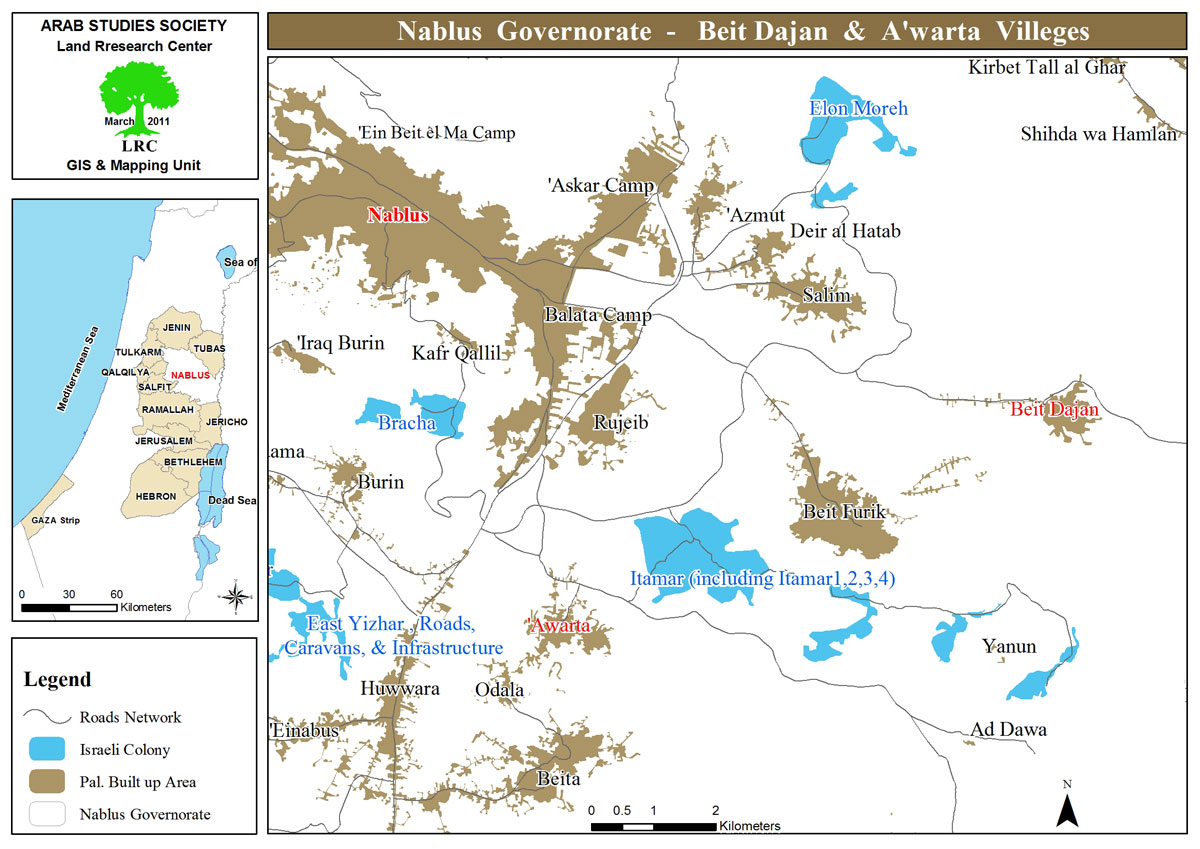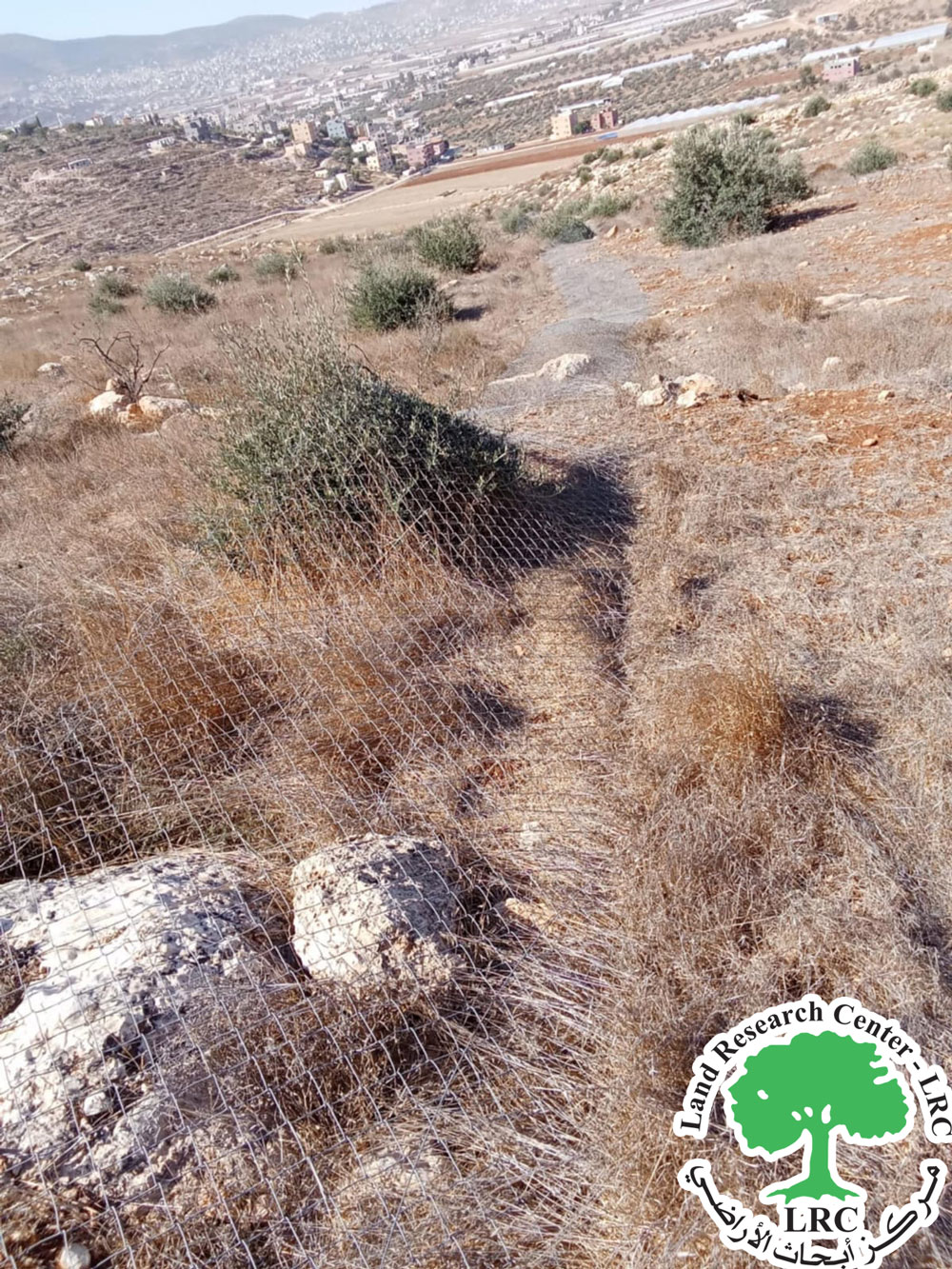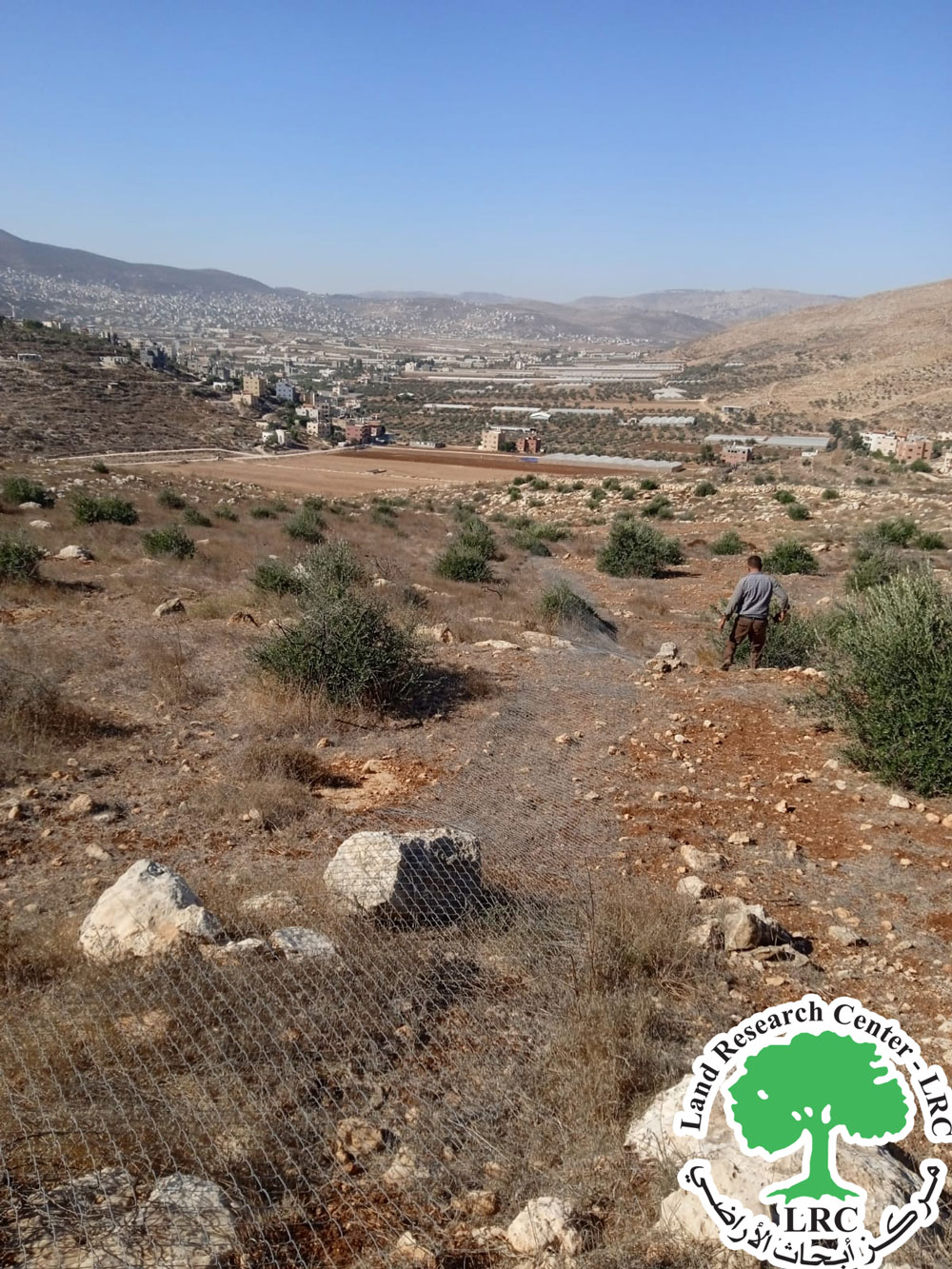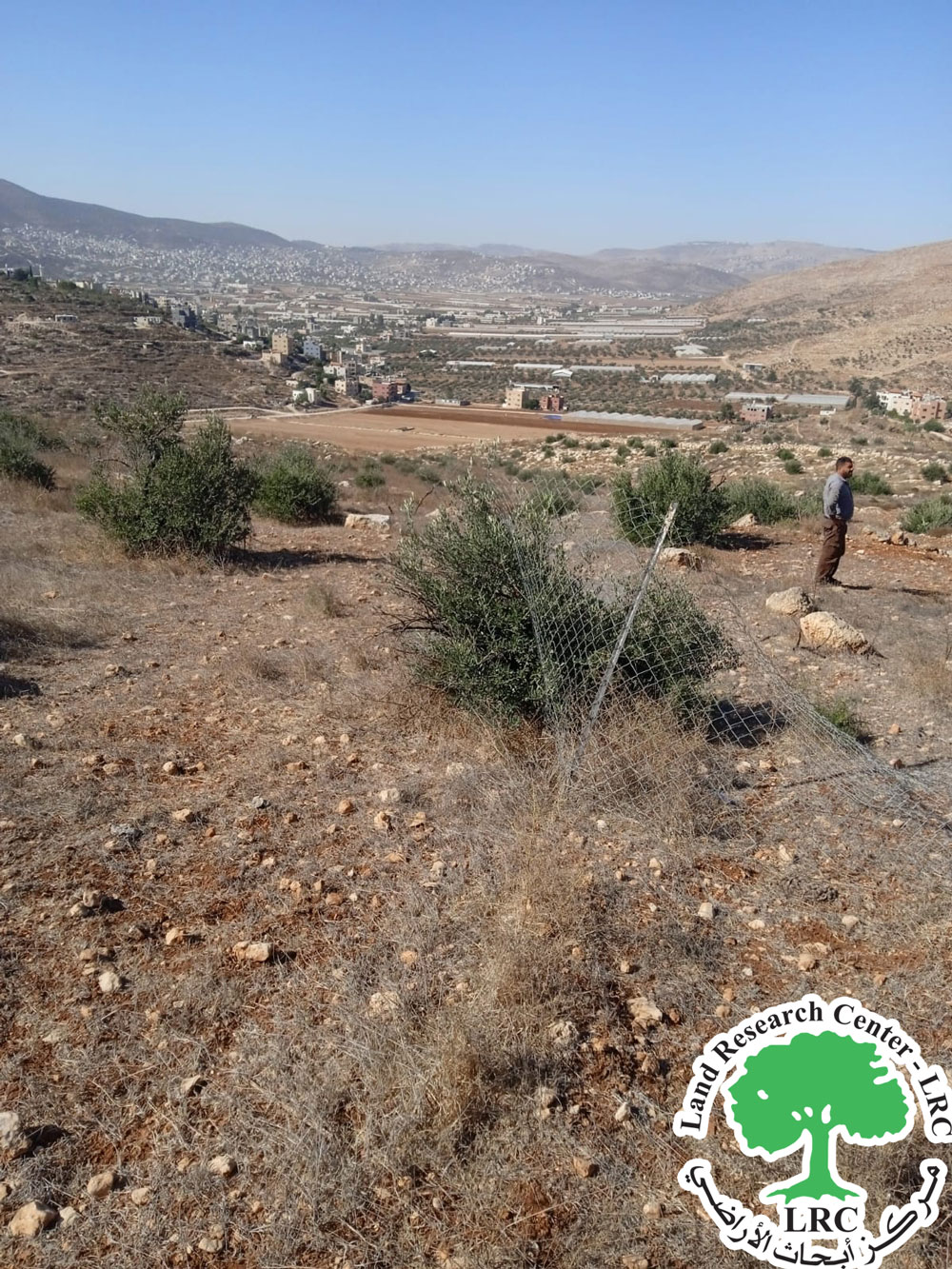Settlers Steal Olive Harvest from 22 Dunums in Beit Dajan/ East of Nablus
Violation: Theft of 2,500 kg of olive harvest.
Location: Beit Dajan village, east of Nablus.
Date of Violation: October 23, 2024.
Perpetrators: Settlers.
Affected Parties: Farmers Majed Yousef Mohammad Kanaan and Mujahid Yousef Mohammad Kanaan.
Description:
During the current olive harvest season of 2024, a group of settlers targeted an olive grove spanning 22 dunums, stealing the harvest. The land belongs to two farmers from Beit Dajan village, east of Nablus Governorate.
The settlers took advantage of the farmers’ inability to access their lands this season due to strict restrictions imposed by the Israeli authorities, citing the proximity to settlements and settlement outposts. They looted olives from approximately 170 olive trees, aged 11 years, totaling around 2,500 kg of produce. The targeted lands are located in the areas known as "Al-Aradat" and "Al-Theeb."
Damage Caused by Settlers Breaching the Fence to Access Olive Fields
The damaged trees belong to farmers Majed Kanaan, who is the breadwinner for a family of 9 members, including 5 females and 3 children, and Mujahid Yousef Mohammad Kanaan, who is the breadwinner for a family of 13 members, including 6 females and 3 children
Farmer Majed Kanaan stated to LRC researcher:
"The lands in the village of Farikha are crucial for our livelihood, providing us with olive oil every year. My siblings and I harvest olives annually, yielding approximately 35 cans of olive oil. Since last year, we’ve been unable to access the land due to the Israeli authorities closing the area. This attack has been devastating, robbing us of an essential source of olive oil that we heavily relied on."
The Israeli occupation continues to restrict access to vast areas of Beit Dajan's lands in the eastern part of the village. At least 120 dunums are inaccessible to farmers, impacting the livelihoods of approximately 45 families in the village who depend on these lands for olive oil production.
Beit Dajan at a Lines:
Beit Dajan is located to the east of Nablus, about 10 km away, and is administratively part of Nablus Municipality. The village has a built-up area of 360 dunums, with a total land area of 44,100 dunums, including 12,500 dunums in the Jordan Valley. The surrounding villages are Salem, Deir Al-Hatab, Talouza, Beit Furik, and Al-Far'a Valley.
The village primarily relies on the cultivation of grains and fruit trees such as olives, figs, and almonds. As of 2010, the population was 3,900, and the residents depend on rainfall for drinking water and agriculture, with additional water from nearby springs.
The Israeli occupation seized part of Beit Dajan's lands in 1973 to establish the agricultural settlement of Mechora, which is one of the agricultural settlements in the Jordan Valley.
[1]Source: Information Systems Unit – LRC
مشروع: حماية الحقوق البيئية الفلسطينية في مناطق "ج" SPERAC V - FCDO
Disclaimer: The views and opinions expressed in this report are those of Land Research Center and do not necessarily reflect the views or positions of the project donor; the Norwegian Refugee Council.
إخلاء المسؤولية: الآراء ووجهات النظر الواردة في هذا التقرير هي آراء ووجهات نظر مركز أبحاث الأراضي ولا تعكس بالضرورة وجهات نظر أو مواقف الجهة المانحة للمشروع؛ المجلس النرويجي. للاجئين




